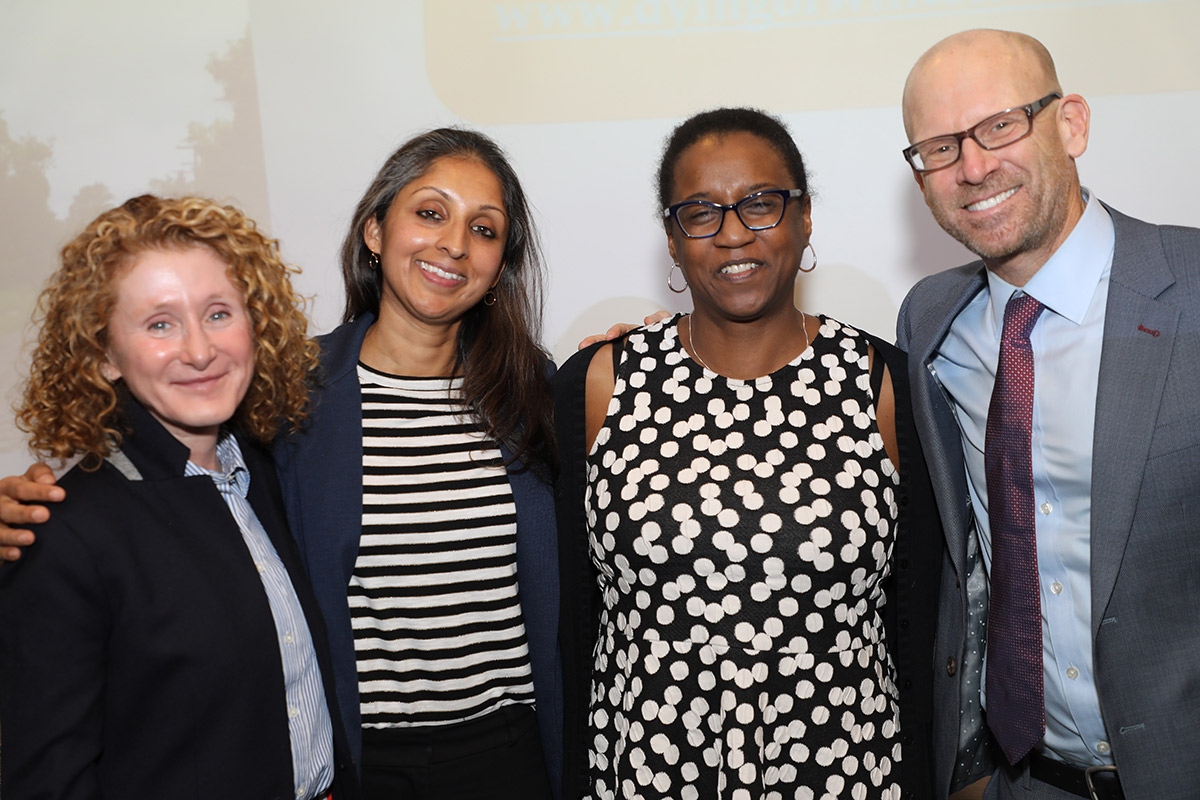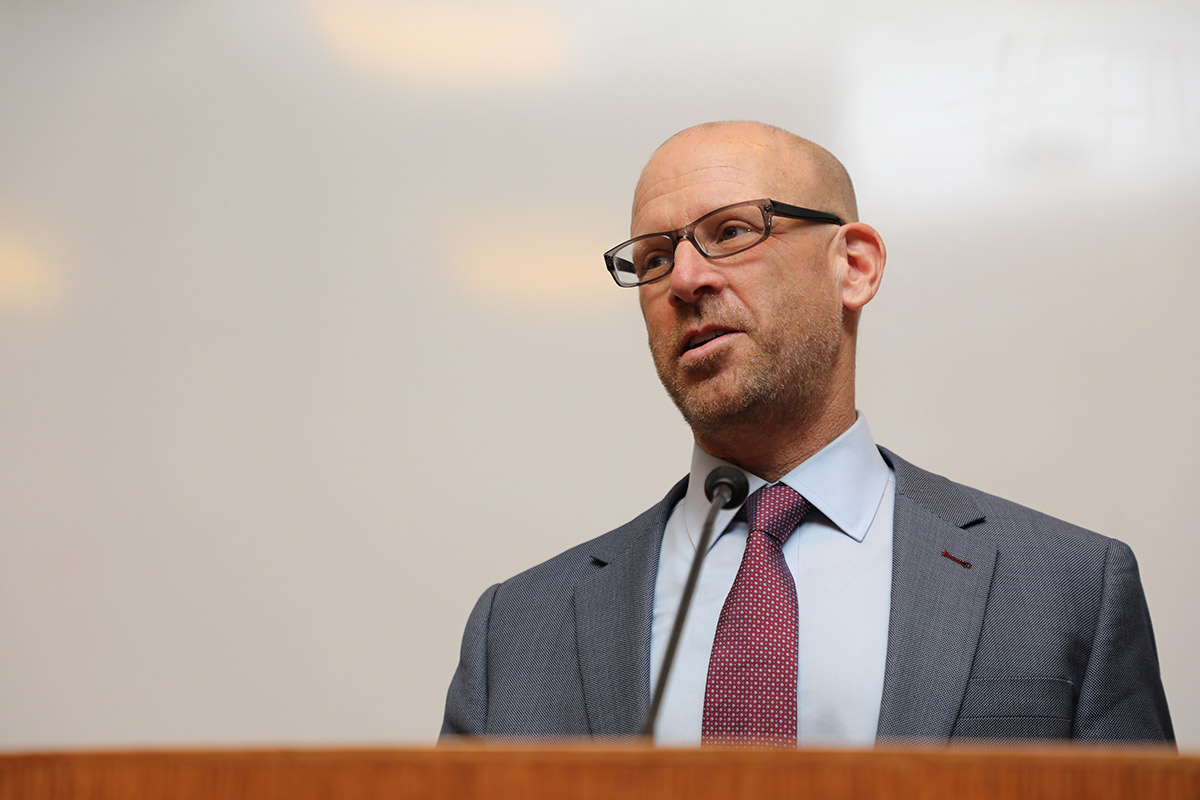An uptick in suicides among rural white males follows the passage of pro-gun legislation in Missouri.
Test scores plummet in Kansas and the drop-out rate accelerates in the wake of state-mandated cuts to the education budget.
Obesity, diabetes and heart disease continue to rise disproportionately among white men after Tennessee lawmakers reject Medicaid expansion and major provisions of the Affordable Care Act, better known as Obamacare.
Each of these trends are hurting white people (especially men) in America’s heartland – yet the common thread linking them is that, in each case, whites overwhelmingly supported the legislation that set the damage in motion.

FURTHER AFIELD Metzl took questions from panelists (from left) Laura Smith, Professor of Psychology & Education; Sonali Rajan, Associate Professor of Health Education; and Provost Stephanie J. Rowley. (Photo: Maria Vullo)
That paradox is the focus of Dying of Whiteness: How the Politics of Racial Resentment is Killing America’s Heartland (Basic Books, 2019) – an incisive data-driven account of the unintended consequences of policy-making that, in the view of author Jonathan M. Metzl, is fueled by racial animus.
“It’s a mortal trade-off that the policies that are supposed to make America great again end up being as dangerous to white Americans as asbestos or not wearing a seatbelt or second-hand smoke,” said Metzl, the Frederick B. Rentschler II Professor of Sociology & Psychiatry and Director of the Center for Medicine, Health & Society at Vanderbilt University, who spoke at Teachers College in mid-November.
Metzl said that Dying of Whiteness grew out of his 2011 study of Tea Party Tennesseans who prioritized opposition to the Obama administration over their own health.
“I’m 53 and I already had two heart attacks,” one participant told Metzl’s research team. “I have a chronic cough. I’m fat, I smoke, my diet sucks. I work 12-hour days flipping burgers then I come back to my room, eat junk food and watch TV and fall asleep. I’m a ticking time bomb, health-wise – I’ve got high blood pressure bad, just like my dad did and he died young.”
The man nonetheless continued, “I ain’t supporting Obamacare, no way no how. And I ain’t signing up for it neither. Ain’t no way I want my tax dollars helping Mexicans or welfare queens.” Metzl discovered a similar mindset when he expanded his research to include his home state of Missouri and neighboring Kansas.
It’s a mortal trade-off that the policies that are supposed to make America great again end up being as dangerous to white Americans as asbestos or not wearing a seatbelt or second-hand smoke.
—Jonathan Metzl
That these states and others in the so-called “Real America” proved to be strongholds of support for President Trump didn’t surprise him, Metzl said. What did: the “nationalization” of views he assumed were limited to alienated voters in marginalized, rural communities.
“I didn’t realize that I would be writing a story about the rise of Trump,” he said. “But that’s what this book became.”
In fielding questions from TC Provost Stephanie Rowley, Associate Professor of Health Education Sonali Rajan and Professor of Psychology & Education Laura Smith, Metzl said he sees possibilities for change. Nodding when Rowley wondered aloud whether “you could march into these towns and begin a dialogue about social justice and whiteness,” he also recalled meeting “so many people whom I’d have hated on Twitter and who would hated me” who ended up chatting about baseball and even – in some cases –repaying the sins of slavery.
Metzl agreed with Smith’s observation that, health consequences or no, white people were still successfully defending their “property advantage.” Nevertheless, he believes that “there are a lot of white people who don’t ascribe” to racist views but lack the language to articulate their feelings or a better way.
Providing it for them might be the best strategy for Democrats, he said, in answer to Rajan’s question about how he sees the 2020 president election playing out.
“What I found was starting in 2011 I could probably have found in 1711,” Metzl said. “There’s an assumption that when people experience Medicare for All, they’ll come around” – but, in fact, their views come from a much deeper and more emotional place. To counter that, he said, Democrats may need to talk openly about the pathology of whiteness. “Right now, there’s only one guy talking about whiteness, and he’s talking about how whiteness is under attack. So Democrats may need to articulate a better way of being white.”
